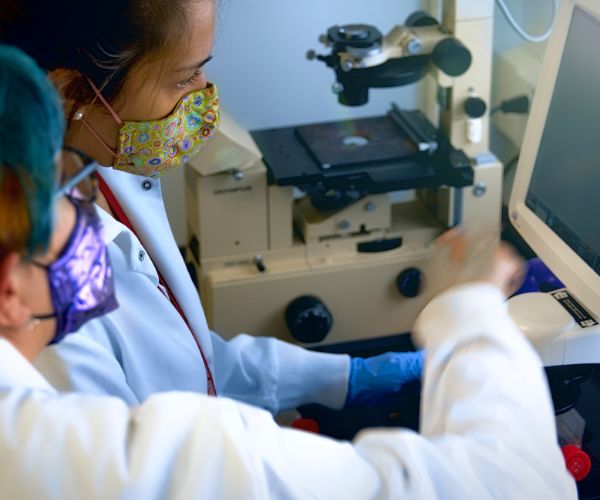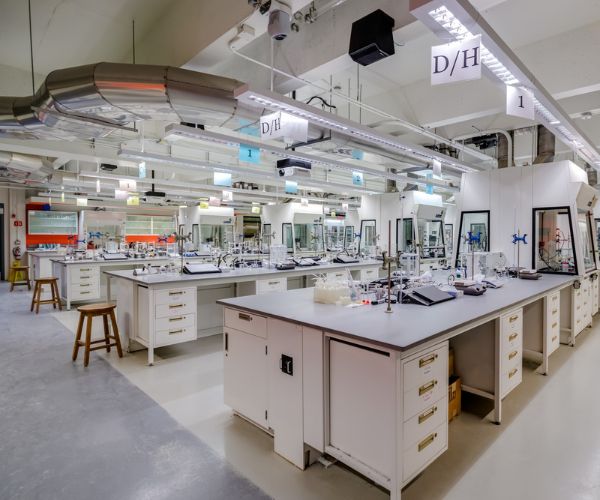Visit Carleton! Book your tour today.
Program Details
Study matter at a scale on the order of 10 to thousands of atoms. Nanoscience has the potential to revolutionize a broad range of industries, from construction and aeronautics to vehicle design and biomedicine.
Examine nanoscience through the disciplines of physical/inorganic chemistry, biochemistry and electrical engineering to understand the physical, chemical, biochemical and electronic characteristics of matter in this size regime. Combining these areas of study will allow you to grasp nanoscience in photonic, electronic, biomedical, energy and communication technologies.
The focus of the program will be on materials—their use in electronic devices, their scalability and the control of their properties. Courses in mathematics, physics and statistics will round out the program, and advanced courses in bionanoscience and nanoelectronics are available. A concentration in Nanotechnology is also available within the Chemistry program.
Work Experience
Our location in Ottawa means that our programs and professors are linked to a wealth of resources, including National Research Council of Canada research centres, government labs as well as microelectronic, communication, and healthcare companies. Ottawa is also home to world-class libraries, Canada’s largest high-tech park, bio-tech sectors, medical research hospitals, industry-sponsored labs and political organizations, all of which provide you with rich possibilities for placements, internships and other work opportunities.
State-of-the-Art Facilities
Nanoscience students are able to gain hands-on experiences in Carleton's state-of-the-art research facilities, including the Superlab and Nano Imaging Facility.

Get started in Carleton360 to receive tailored information on our programs, student services and community.

Career Outcomes
Explore your passions, refine new skills and discover the career that’s right for you.
Graduates of the program are well qualified to work for the federal government and other agencies, as well as in industry and research. Nanoscientists and nanotechnologists work in areas of communications and solar cell technology, microelectronics, the aerospace industry, as well as in research and development in green technologies, to name a few.

Sample Courses
CHEM 1011 - Enriched General Chemistry 1
This is a maths-intensive specialist course intended for chemistry majors or students planning to pursue courses in chemistry at the 3000-level and above. Topics include atomic structure, periodic trends, structure and bonding, gas laws, intermolecular forces, equilibrium, acids and bases, and buffers.
CHEM 4104 - Physical Methods of Nanotechnology
An overview of methods used in nanotechnology. Principles of scanning probe techniques ranging from surface physics to biology. State of the art methods to create nanostructures for future applications in areas such as nanolithography, nanoelectronics, nano-optics, data storage and bio-analytical nanosystems.
Visit the Undergraduate Calendar to view a comprehensive list of course offerings for this program and discover the exciting things Carleton students are learning in the classroom!

